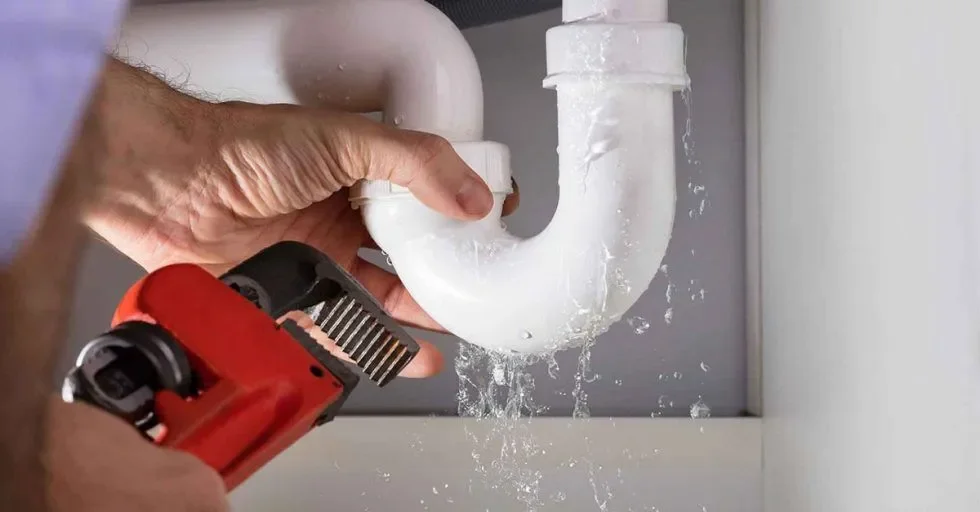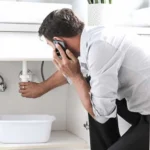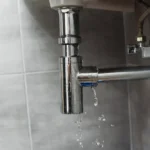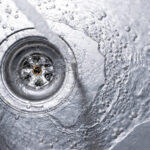Water disasters are among the most damaging issues a homeowner can face. From minor leaks to full-blown flooding, water-related problems can result in costly repairs, structural damage, and even health hazards like mold growth. The good news is that with proactive measures, regular maintenance, and a keen eye for warning signs, most water disasters can be prevented. This guide will provide homeowners with practical tips to protect their property, minimize risks, and know when to call in the professionals.

Content
Identify Vulnerable Areas in Your Home
The first step in preventing water disasters is understanding where your home is most vulnerable. Kitchens, bathrooms, basements, and laundry areas are common hotspots for leaks and flooding. Pipes under sinks, behind toilets, and inside walls are often hidden from view, making leaks difficult to spot until serious damage occurs.
Older homes with outdated plumbing systems are particularly at risk. Even small leaks can cause significant damage over time, so regular inspections are essential. Check for damp patches on walls, ceilings, and floors, and ensure all appliances connected to water lines are in good working order.
Regular Maintenance Tips
Preventing water disasters starts with consistent maintenance. Here are some practical steps every homeowner can take:
- Clean Gutters and Downspouts: Clogged gutters can cause water to overflow and seep into walls or foundations. Regular cleaning helps direct rainwater safely away from your home.
- Inspect Appliances: Washing machines, dishwashers, and water heaters can develop leaks if not maintained properly. Check hoses and seals for wear and tear and replace them as needed.
- Replace Worn-Out Seals and Washers: Over time, washers and seals on taps, showers, and pipes deteriorate, leading to leaks. Regular replacement prevents small drips from becoming bigger problems.
Recognize Early Warning Signs
Many water disasters can be prevented if homeowners catch the early warning signs. Some key indicators include:
- Unusual Water Bills: A sudden spike in your water bill could indicate an undetected leak somewhere in your home.
- Stains, Mold, or Musty Odors: Water stains on walls or ceilings and persistent damp smells are often early signs of leaks or excess moisture.
- Dripping Taps or Slow Drainage: Even minor plumbing issues should not be ignored, as they can escalate into major problems if left untreated.
Take Preventive Measures
Beyond regular maintenance and monitoring, there are additional steps homeowners can take to safeguard their property:
- Install Water Leak Detectors: These devices alert you to leaks before they cause significant damage. Placing them near sinks, water heaters, and washing machines can prevent major disasters.
- Insulate Pipes: In colder months, freezing pipes can burst, causing extensive water damage. Insulating pipes helps prevent this issue.
- Use Sump Pumps in Basements: If your home has a basement prone to flooding, a sump pump can quickly remove excess water and protect your property.
Know When to Call Professionals
While proactive maintenance can handle many issues, some situations require the expertise of a professional. Hiring experienced plumbers in Grays Essex ensures that minor problems are resolved correctly and that potential disasters are prevented.
Professional plumbers can:
- Conduct thorough inspections of hidden pipes and plumbing systems.
- Provide emergency repairs to prevent flooding or structural damage.
- Advise on upgrades to improve water flow, prevent leaks, and enhance safety.
Knowing when to call a professional can save homeowners both time and money, avoiding the costly consequences of water damage.
Emergency Preparedness
Even with all precautions, accidents can happen. Being prepared for a sudden water disaster can minimize damage:
- Shut Off the Water Supply: Know where your main water valve is and how to turn it off quickly.
- Document Damage: Take photos of affected areas to support insurance claims.
- Have an Emergency Plan: Keep essential tools, towels, and buckets handy for minor floods or leaks until professional help arrives.
Conclusion
Preventing water disasters requires vigilance, regular maintenance, and knowing when to seek professional help. By inspecting vulnerable areas, recognizing warning signs, and taking proactive steps like installing leak detectors and insulating pipes, homeowners can protect their property from costly damage.
For many homeowners, the involvement of trusted plumbers in Grays Essex is invaluable. Their expertise ensures that plumbing systems remain reliable, leaks are addressed promptly, and minor issues don’t escalate into major disasters.
Water disasters may be unpredictable, but with careful planning, preventive measures, and professional support, you can safeguard your home, preserve your belongings, and enjoy peace of mind. Remember, a little preparation today can prevent significant stress and expense tomorrow.

Melissa Day is a dedicated home blogger who has been blogging for over six years. She covers everything home related. Melissa also loves writing posts about her travels to Europe with her husband and two children.










